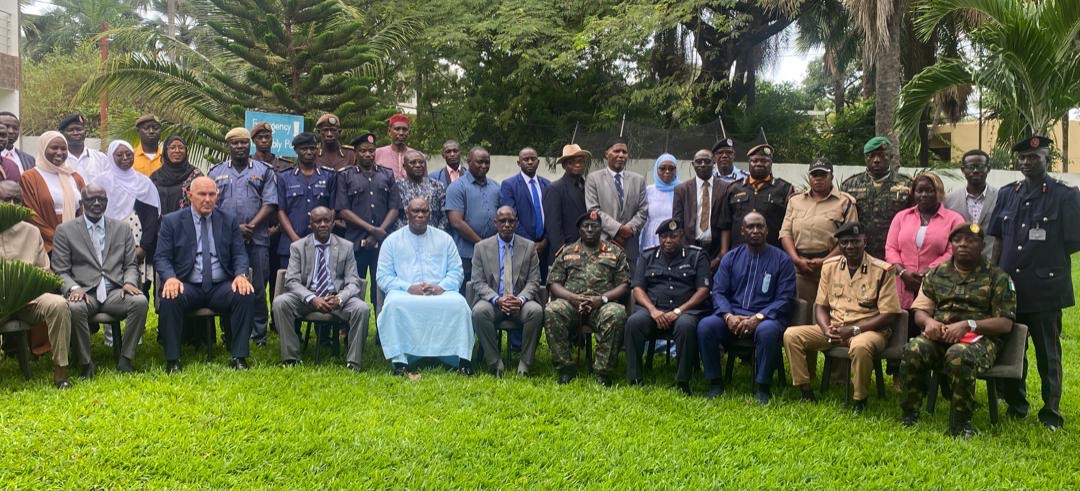By Binta Jaiteh
The Minister of Defense and Security Serign Modou Njie has said that coordination of national security is a challenge asserting that there is an increasing push on national security institutions to adopt a whole-of-government approach to problem-solving.
The Minister revealed this during a five-day workshop aimed at developing a Standard Operating Procedure (SOP) for the Gambia National Security Sector Coordination Model (NSSCM) held in collaboration with the Geneva Centre for Security Sector Governance (DCAF).
The workshop is meant to provide standardised response guidelines for national security activities and operations, identifying key roles, responsibilities, and command structures for enhanced coordination between security institutions.
According to the Minister, governance is the process of decision-making and the process by which decisions are implemented. The policy area in which the national interest conditions make coordination particularly difficult is national security.
“Since the introduction of the Security Sector Reform/Governance (SSR/G) program in The Gambia in 2017, The Government has continued to support the process, which sets out the parameters necessary to enable the fulfillment of legitimate security functions through reforms, restructuring, and institutional development”, he stated.
The Defense Minister explained further that a significant level of reform activities has been achieved in terms of capacity building and institutional development of Security Services. The SSR/G is on course and the government is determined to carry the process to a logical end to achieve a well-defined security architecture for the country. The unpredictable nature of the 21st-century threats to national security can only be neutralized with the employment of dynamic and robust strategies.
More so, he noted that such strategies would demand a mix of kinetic and non-kinetic approaches as the threat environment and assessment may dictate. While kinetic approaches would involve the aggressive use of ‘hard power’ through offensive military measures to eliminate identified threats, non-kinetic approaches require a ‘whole-of-government’ and ‘whole-of-society’ approach, which fuses into a harmonious ‘whole-of-nation’ approach towards solving national security threats.
The National Security Adviser, Abubacarr Sulayman Jeng, said the threats to National Security are multidimensional and multifaceted which require a holistic approach to mitigate. The National Security Sector Coordination Model, he added, arosefrom the need to provide a framework that will ensure the protection of The Gambia and to provide optimal safety and security delivery to citizens and residents.
Ken Isaac of the DCAF Head Office in Banjul noted that the Geneva Centre for Security Sector Governance (DCAF) is dedicated to enhancing security through more effective and accountable security and justice systems.
“DCAF has 15 permanent offices and operates in 70 countries, and with experts from 40 nations, DCAF upholds principles of impartiality, local ownership, inclusive participation, and gender equality”, he stated.
According to him, “We have provided capacity-building support to SI’s especially the GPF and GID under the Swiss funded project. Today’s workshop exemplifies the EU and DCAF’s commitment to supporting the implementation of the SSR Strategy, with a focus on protecting life and property, by maximising the coordination, collaboration, and effectiveness of all SI’s in The Gambia.”




